Unveiling the True Beauty of Uranus and Neptune through ColorCorrected
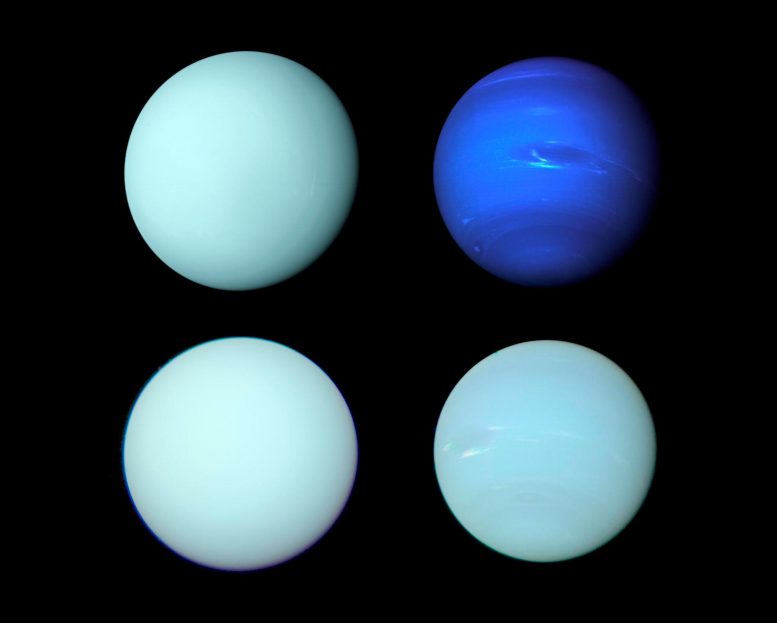
Astronomical Illusions New Photographs Reveal What Neptune and Uranus
On Sept. 21, 2022, the James Webb Space Telescope delivered the clearest view of Neptune's rings in more than 30 years. Webb's Near-Infrared Camera (NIRCam) captured several bright, narrow rings as well as the planet's fainter dust bands. Voyager 2 was the last to detect some of these rings during its flyby in 1989, but this is the first time we have an infrared image of them.
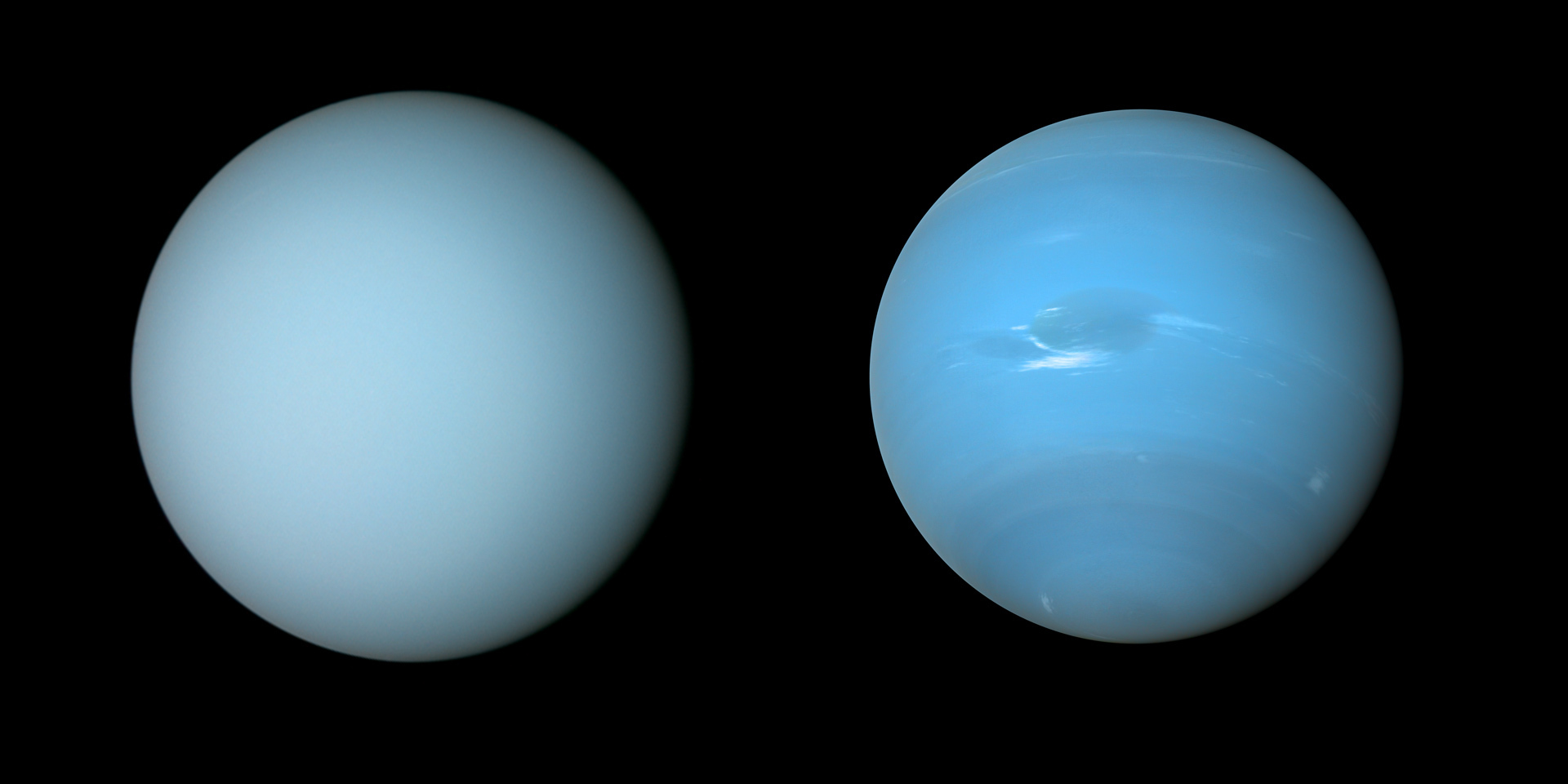
Voyager 2 failed with the color of Neptune
NSSDCA, Mail Code 690.1. NASA Goddard Space Flight Center. Greenbelt, MD 20771. +1-301-286-1187. [email protected]. NSSDCA Photo Gallery: Neptune - A collection of images of the planet Neptune and its satellites.
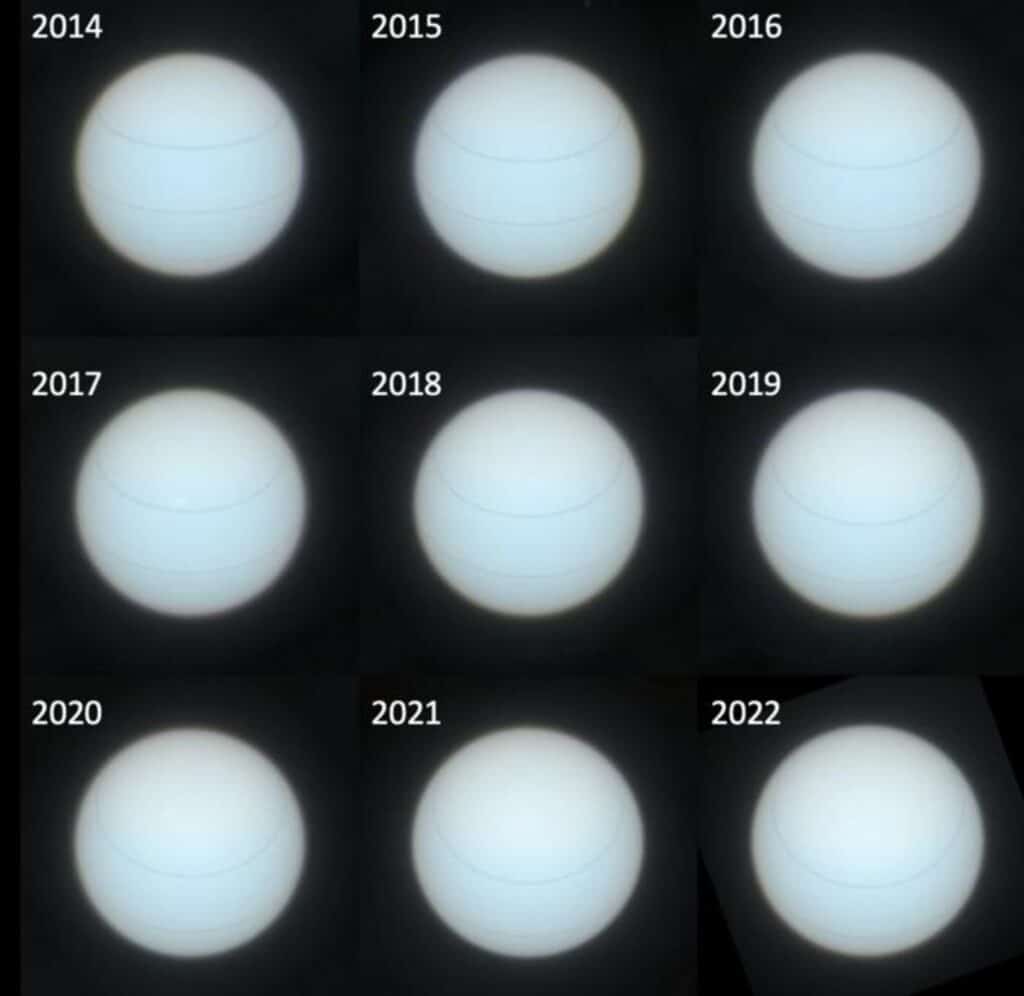
True Colors Of Neptune, Uranus Revealed In Surprising New Study
Neptune Full Disk View This picture of Neptune was produced from the last whole planet images taken through the green and orange filters on the Voyager 2 narrow angle camera. The images were taken at a range of 4.4 million miles from the planet, 4 days and 20 hours before closest approach.

Scientists have finally revealed the true colors of Uranus and Neptune
Webb Telescope's Images of Neptune Showcase Its Rings and Moons They're the clearest pictures of the distant planet's rings in over three decades Will Sullivan Daily Correspondent September.
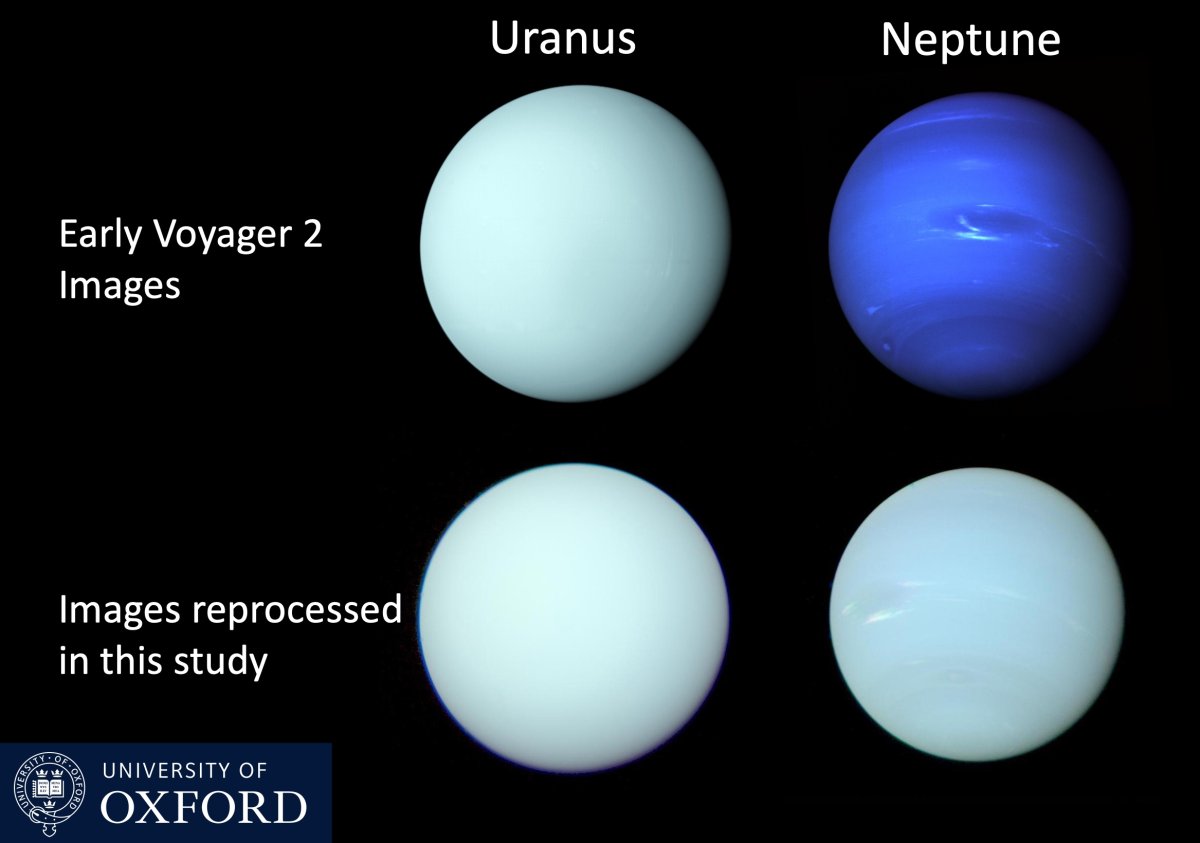
Neptune's true face revealed debunked image that 'tormented for decades'
Browse 924 authentic neptune planet stock photos, high-res images, and pictures, or explore additional jupiter planet or saturn planet stock images to find the right photo at the right size and resolution for your project. jupiter planet saturn planet jupiter mercury planet venus planet of 16 NEXT
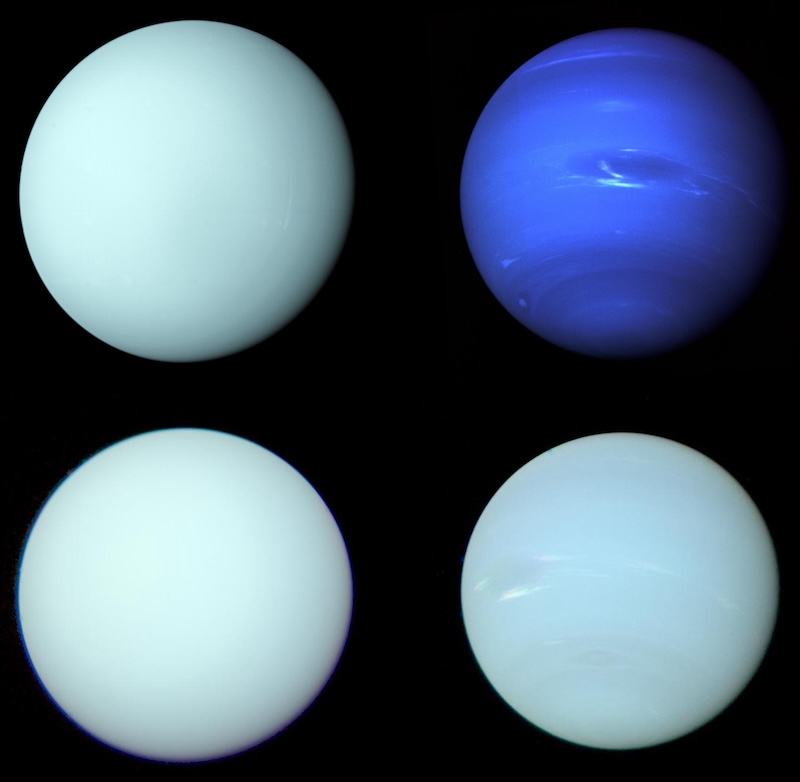
True colors of Uranus and Neptune in newly processed images SkyEarth
galleries / images voyager took Images Voyager Took of Neptune In the summer of 1989, NASA's Voyager 2 became the first spacecraft to observe the planet Neptune, its final planetary target. Passing about 4,950 kilometers (3,000 miles) above Neptune's north pole, Voyager 2 made its closest approach to any planet since leaving Earth 12 years ago.
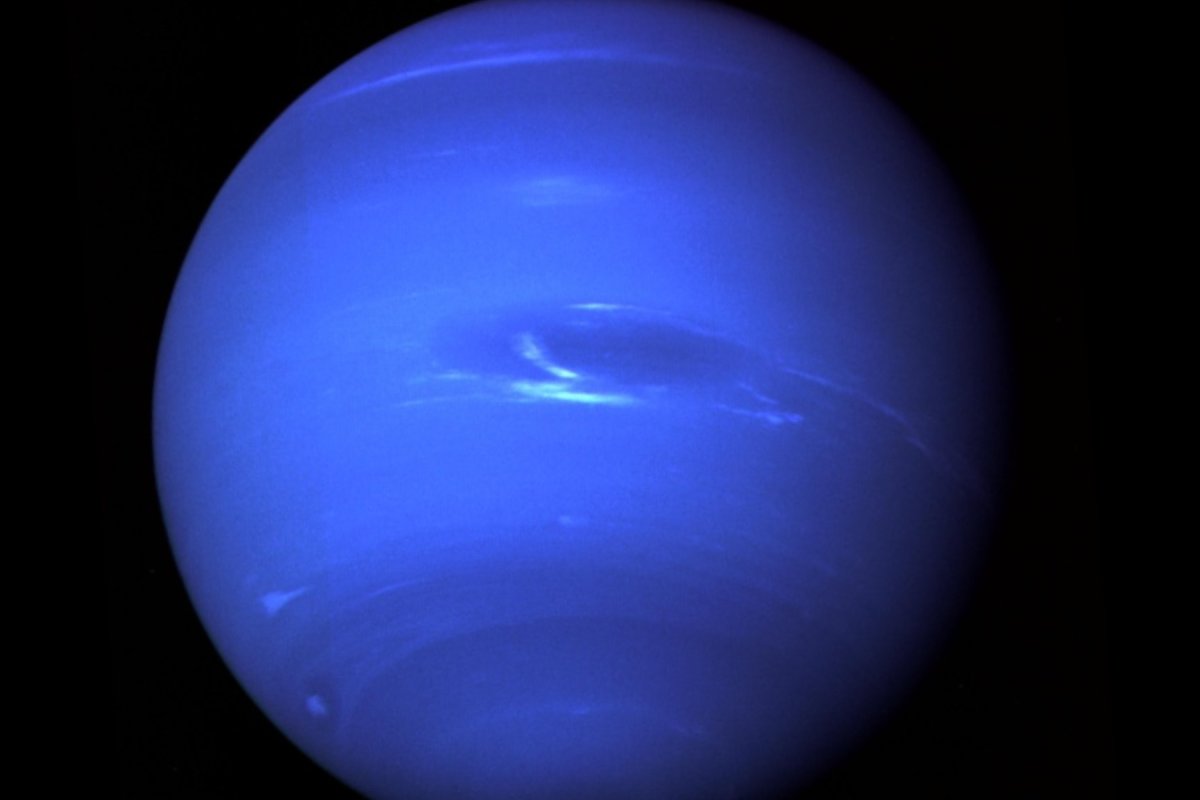
True Face of Neptune Revealed Debunking Image That 'Bedeviled for
New images from the space-based observatory offer a novel view of the planet in infrared. Neptune with its rings and several of its moons clearly visible, as captured by the James Webb Space.
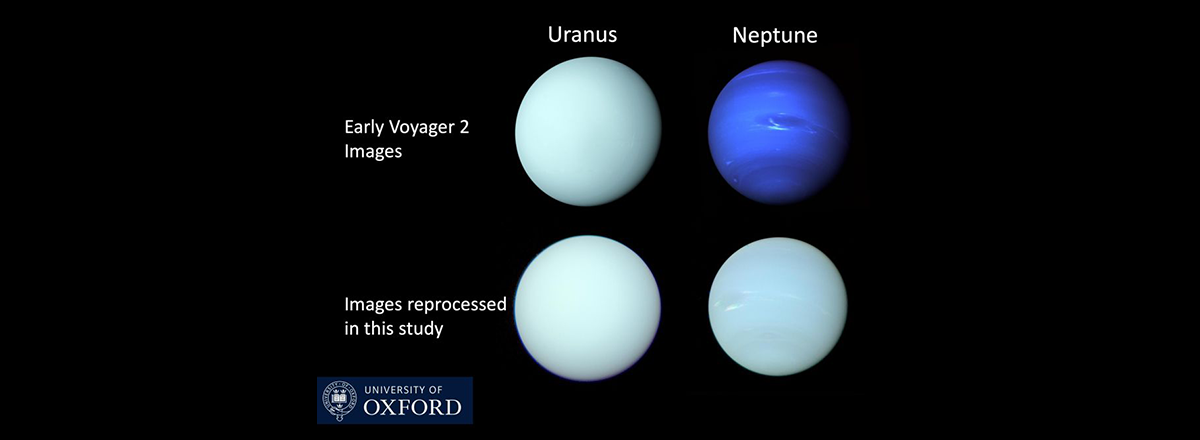
New Images Reveal the True Colors of Neptune and Uranus
This picture of Neptune was produced from the last whole planet images taken through the green and orange filters on the Voyager 2 narrow angle camera. The images were taken on Aug. 20, 1989, at a range of 4.4 million miles from the planet, 4 days and 20 hours before closest approach on Aug. 25.

Unveiling the True Beauty of Uranus and Neptune through ColorCorrected
NASA's James Webb Space Telescope shows off its capabilities closer to home with its first image of Neptune. Not only has Webb captured the clearest view of this distant planet's rings in more than 30 years, but its cameras reveal the ice giant in a whole new light.
A collage of all the in true color r/pics
Neptune and its Great Dark Spot. Image credit: NASA/JPL. Here's an amazing pic of Neptune captured by Voyager 2. In this image, the planet's Great Dark Spot is much more visible. You can also.

Not so blue Astronomers have figured out the true color of Uranus and
Webb also caught images of seven of Neptune's 14 known moons: Galatea, Naiad, Thalassa, Despina, Proteus, Larissa and Triton. Triton is Neptune's largest moon. It's covered in a frozen sheen of condensed nitrogen and reflects most of the sunlight that hits it, which means it looks like a bright point of light in some images.

Neptune Conjunct North Node Meaning and Interpretation
These pictures of Neptune were obtained by NASA Voyager 2 on Apr. 26,1989. The picture on the right was taken. This dramatic view of the crescents of Neptune and Triton was acquired by Voyager 2 approximately 3 days, 6 and. This photograph of Neptune was reconstructed from two images taken by NASA Voyager 2. At the north top is the.

Neptune is more of a greenish blue than is generally depicted NPR
14 Moons Named for sea gods and nymphs in Greek mythology. Rings and Arcs Neptune has five rings and four more ring arcs, Solo Voyager Voyager 2 is the only spacecraft to visit Neptune. Bring a Spacesuit Atmosphere: molecular hydrogen and atomic helium with a bit of methane. No Life Signs Neptune cannot support life as we know it. Orbit Crossing

Revealing the True Colors of Neptune and Uranus New Research and
Neptune is the eighth and farthest planet from the Sun.It is the fourth-largest planet in the Solar System by diameter, the third-most-massive planet, and the densest giant planet.It is 17 times the mass of Earth, and slightly more massive than its near-twin Uranus.Neptune is denser and physically smaller than Uranus because its greater mass causes more gravitational compression of its atmosphere.

New images reveal what Neptune and Uranus really look like Meantime
3 Images of Neptune. Full Resolution: TIFF (38.53 kB) JPEG (11.75 kB) 1999-08-30. Neptune. Voyager. VG ISS - Narrow Angle. 700x852x3. PIA00052: Neptune Great Dark Spot in High Resolution.

Neptune sextile Midheaven synastry understanding & support
The images of Uranus, the seventh planet from the sun, and Neptune, the eighth planet, were collected in 1986 and 1989, respectively, as NASA's Voyager 2 spacecraft headed out of the solar system.